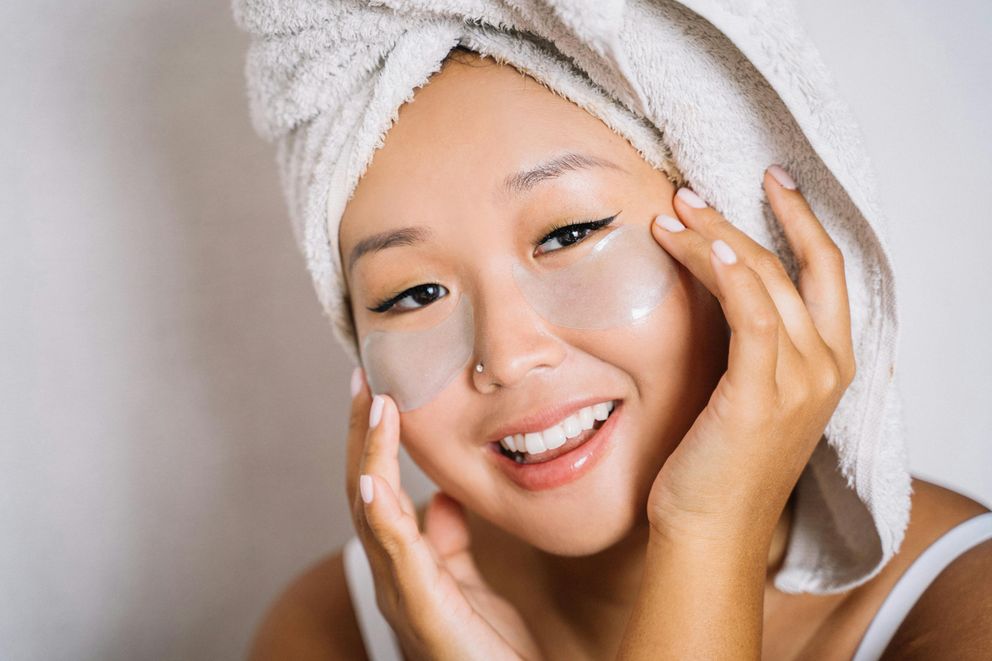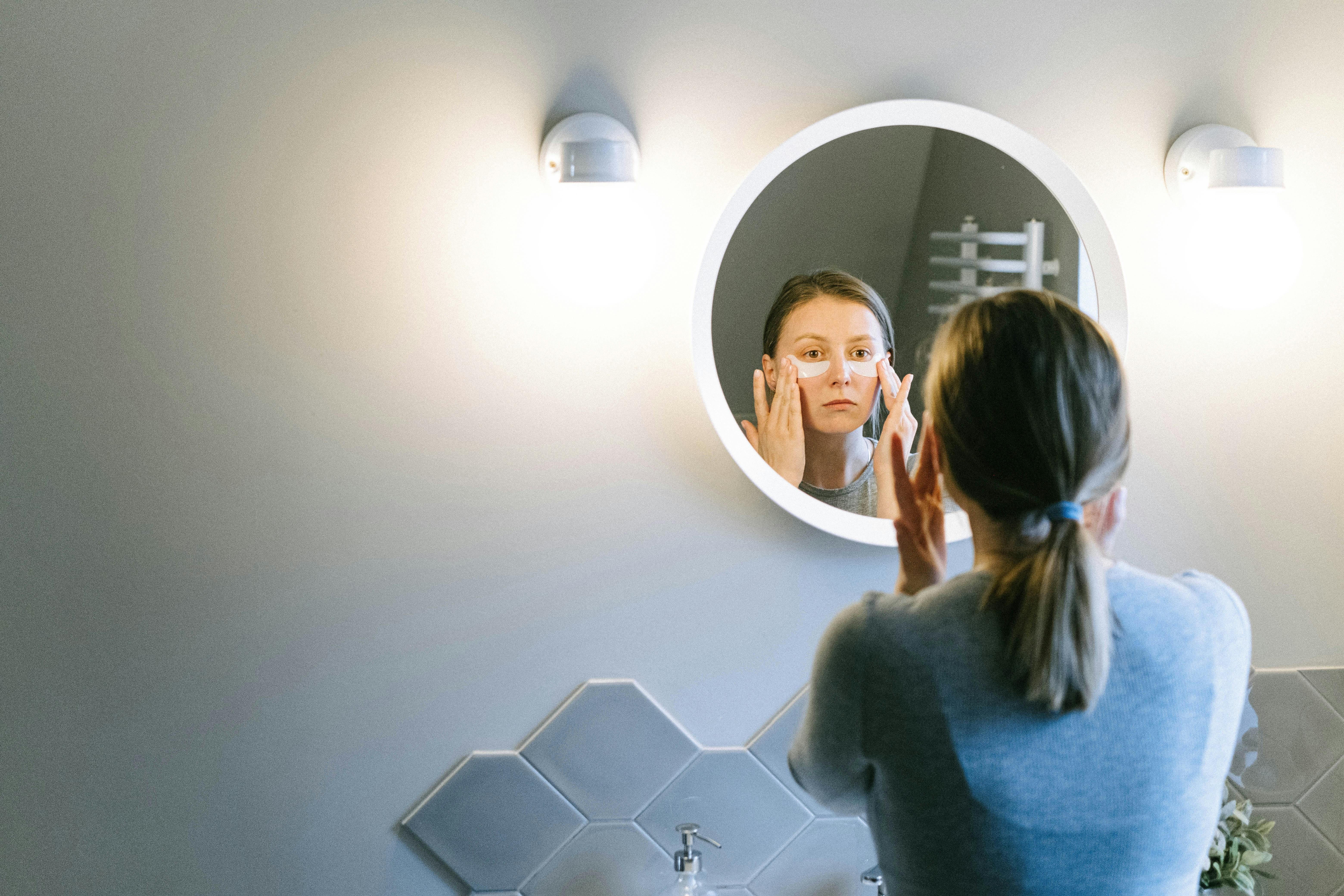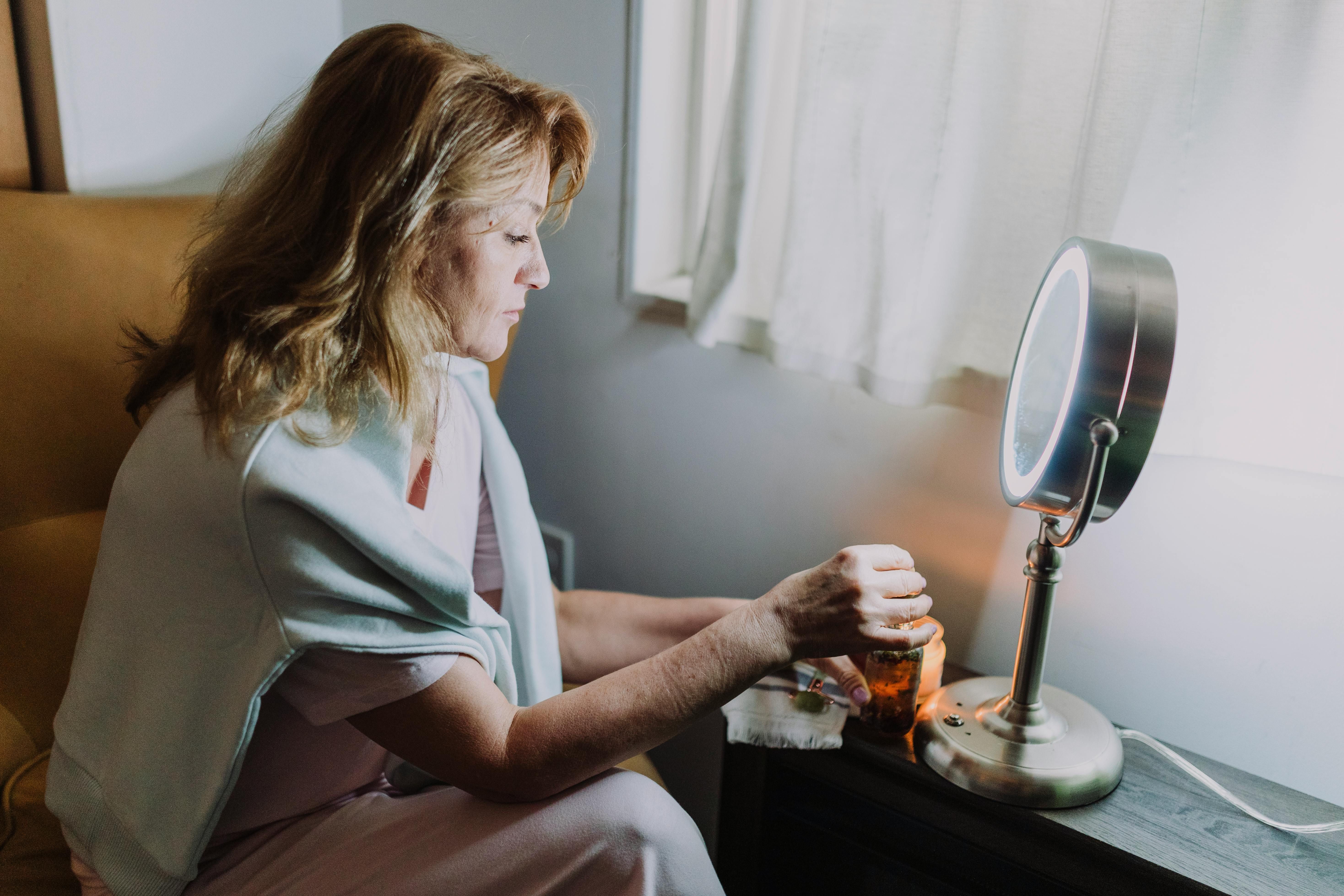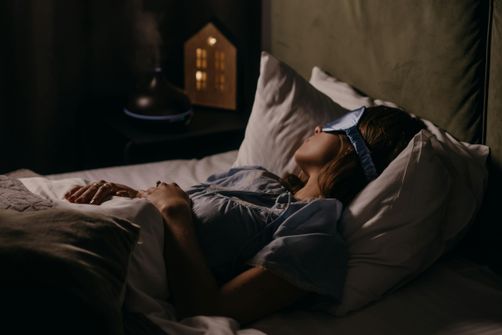
CBT for Women’s Sexual Health: Tackling Anxiety, Body Image, and Intimacy Issues
Sexual health is a critical component of overall well-being, but many women face challenges related to intimacy, body image, and anxiety that can affe...

We’ve all heard the saying, “Get your beauty sleep!” But what does that really mean? Beauty sleep is not just a phrase tossed around—it’s a scientifically backed concept. Your skin works hardest to repair itself while you sleep, and each stage of sleep contributes to that process in different ways.
In this expanded guide, we’ll explore the science behind beauty sleep, break down how each stage of sleep benefits your skin, and give you the tools to maximize your skin’s overnight recovery.

Not all sleep is created equal when it comes to skin regeneration. To understand how sleep affects skin health, let’s break down each sleep stage:
This is the lightest phase of sleep when your body temperature starts to drop, your heart rate slows, and your muscles relax. Although not much repair happens here, these stages set the stage for deeper sleep, where your skin gets the most benefits.
Blood Flow Boost: During these stages, blood flow to the skin increases, delivering oxygen and nutrients that help with cell regeneration. Increased blood circulation improves your skin tone and gives you that healthy glow.
This is where the real magic happens! Deep sleep is when your body releases growth hormones that promote tissue and cell repair, including collagen production. Collagen is the protein responsible for keeping your skin firm, smooth, and youthful. Deep sleep also aids in repairing damage from UV rays and environmental toxins, which accumulate throughout the day.
Collagen Production: During deep sleep, collagen production kicks into high gear, repairing wrinkles and strengthening the skin barrier. Collagen gives your skin structure and elasticity, so getting enough deep sleep is crucial if you want to avoid early signs of aging like sagging or fine lines.
Cell Turnover: Deep sleep supports the shedding of old skin cells and the formation of new ones, keeping your skin refreshed and vibrant. According to dermatologists, deep sleep allows your skin to work overtime to replace dead cells and heal damage.
While REM (Rapid Eye Movement) sleep is more focused on brain activity and dreams, it also contributes to your skin’s moisture retention and protection. During REM, your skin strengthens its barrier to prevent moisture loss and protect against daily aggressors like pollution and dirt.
Hydration Boost: At night, your skin loses more water through transepidermal water loss than it does during the day. REM sleep helps your skin hold onto that moisture, keeping it hydrated and plump. That’s why you often wake up with smoother skin after a good night’s sleep.
Repair & Defend: REM also contributes to repairing environmental damage and restoring your skin’s defensive barrier, which can be compromised by things like sun exposure and pollution.
If you’re not getting enough rest, it’s not just your energy levels that suffer—your skin takes a major hit too. Lack of sleep doesn’t just result in looking tired; it speeds up the aging process and exacerbates skin conditions. Let’s break down the science:
Premature Aging: A consistent lack of sleep reduces collagen production, accelerating the appearance of fine lines, wrinkles, and sagging skin. Research from the Clinical and Experimental Dermatology found that sleep deprivation reduces the skin’s ability to repair itself from daily damage, leading to premature aging.
Inflammation & Acne: Poor sleep elevates cortisol levels, leading to more inflammation, which can worsen acne, rosacea, and eczema. Inflammation disrupts the skin barrier, making it more sensitive to irritants and allergens. A study in Cell also showed that elevated cortisol contributes to an increase in sebum production, leading to more acne breakouts.
Dull Complexion & Dark Circles: Sleep deprivation affects blood circulation, which means less oxygen and nutrients are delivered to your skin. This leads to a dull, washed-out complexion. Dark circles and puffiness under the eyes are the most visible signs of poor sleep, as blood vessels become more prominent and fluid builds up around the eye area.

Now that we understand the benefits of sleep for skin health, how can you make the most of it? Here are some expert tips to help you wake up with healthier, glowing skin:
Aim for 7-9 hours of sleep every night. According to the PLOS ONE, maintaining a consistent sleep schedule helps regulate your circadian rhythm, which improves your ability to enter deep, restorative sleep. Deep sleep is essential for collagen production and overall skin repair.
Sleeping on your side or stomach can cause “sleep wrinkles” due to the pressure of your face against the pillow. Over time, these wrinkles can become permanent. Dermatologists recommend sleeping on your back to avoid unnecessary pressure on your skin and to allow fluids to drain, reducing puffiness.
Nighttime is the best time to apply products that boost skin regeneration:
Retinoids: Retinoids are a powerhouse anti-aging ingredient. They increase cell turnover, helping with fine lines, wrinkles, and uneven skin tone. Just make sure to apply them at night, as sunlight can break down their effectiveness and increase sensitivity to UV rays.
Hyaluronic Acid: This hydrating ingredient helps lock moisture into the skin. Applying a Hyaluronic Acid serum before bed can combat overnight dehydration and keep your skin plump.
Peptides: Peptides help stimulate collagen production and support your skin’s repair processes. Applying a peptide-rich night cream can give your skin the extra help it needs while you sleep.
Your skin loses moisture while you sleep, so applying a rich moisturizer or overnight mask is key. Ingredients like ceramides and glycerin help lock in hydration and prevent transepidermal water loss. Drinking enough water throughout the day also helps keep your skin hydrated from the inside out.
Adding the right supplements to your routine can help both your sleep quality and your skin health:
To truly benefit from beauty sleep, you need more than just a good mattress. Here’s how to create the ultimate sleep space:

Q: How does sleep actually improve skin health? A: Sleep is crucial for skin regeneration. During deep sleep, your body produces growth hormones that boost collagen production, which keeps your skin firm and youthful. Your skin also repairs damage caused by environmental factors like UV rays and pollution, while REM sleep helps lock in moisture and strengthen the skin’s protective barrier.
Q: What happens to my skin if I don’t get enough sleep? A: Lack of sleep can lead to a range of skin issues, including premature aging, increased sensitivity, and a dull complexion. Sleep deprivation reduces collagen production, leading to wrinkles and fine lines. It also increases cortisol levels, which can trigger inflammation and worsen acne or other skin conditions.
Q: How many hours of sleep do I need for healthy skin? A: Most experts recommend 7-9 hours of quality sleep per night for optimal skin health. This allows your skin enough time to repair and regenerate during the deeper stages of sleep.
Q: Can my sleep position affect my skin? A: Yes! Sleeping on your stomach or side can press your face against the pillow, causing sleep lines that can turn into wrinkles over time. Dermatologists recommend sleeping on your back to avoid this.
Q: What can I do to maximize the benefits of beauty sleep? A: To maximize the benefits, keep a consistent sleep schedule, use a nighttime skincare routine with products like retinoids and hyaluronic acid, and sleep in a cool, dark room. Using silk pillowcases and staying hydrated can also help protect your skin while you sleep.
Q: Can supplements help improve sleep and skin health? A: Yes, supplements like Magnesium and collagen can support better sleep and skin health. Magnesium helps you relax and promotes deeper sleep, while collagen supplements improve skin elasticity and hydration.
This article is for informational purposes only and is not a substitute for professional medical advice, diagnosis, or treatment. Always consult with a healthcare professional or dermatologist regarding any concerns about your skin, sleep issues, or before adding new supplements to your routine. The advice provided may not be suitable for everyone, and individual results may vary based on personal health factors.
At the end of the day, sleep is one of the most powerful tools you have for maintaining healthy, youthful skin. By sticking to a regular sleep schedule, incorporating the right skincare products, and creating a restful sleep environment, you can maximize your beauty sleep and wake up glowing.
So, prioritize your sleep, invest in a solid nighttime routine, and let your skin work its magic overnight. Sweet dreams and glowing mornings await! ✨

Sexual health is a critical component of overall well-being, but many women face challenges related to intimacy, body image, and anxiety that can affe...

Sleep is essential for physical and mental well-being, but many women struggle with sleep disorders like insomnia, which can lead to fatigue, irritabi...

Cognitive Behavioral Therapy (CBT) is a powerful, evidence-based treatment widely used to address issues like depression, anxiety, and stress. But whe...

Friendship isn't just about shared laughs, deep conversations, and happy memories—it's also about longevity. Female friendships play a crucial role in...

Liminal spaces, or transitional periods in life, represent moments of transformation where women are “in between”—neither in the old nor the new, but ...